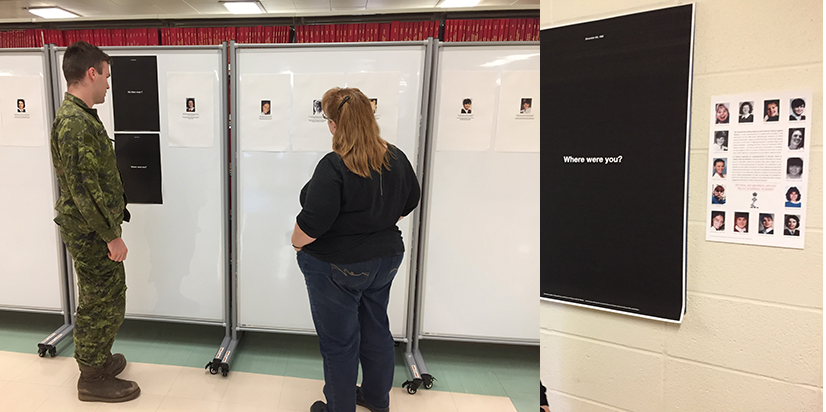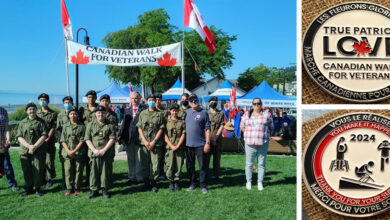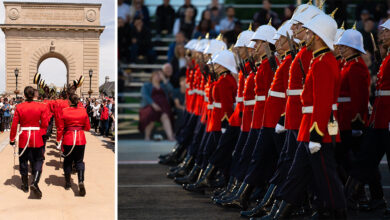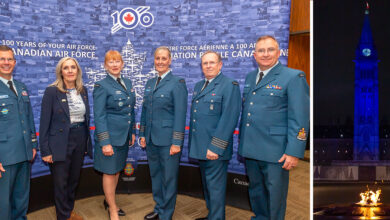Events
RMC honours the memory of the 14 woman murdered at l’École Polytechnique de Montréal
Where were you on Dec. 6, 1989?
That’s the question the Royal Military College of Canada asked its community for several weeks in December to honour the memory of the 14 women who were murdered at l’École Polytechnique de Montréal in 1989.
The RMC takes part in the annual National Day of Remembrance and Action on Violence Against Women. This day takes into account the horrific murders of 14 young women killed simply because they were women seeking higher education.
“It’s especially important for post-secondary institutions in Canada to recognize it because they’re supposed to be spaces of challenging conventional ideas and pushing against prejudice and ignorance. And, so, for that massacre to have happened at a school of higher learning, where people are supposed to be coming together through ideas and intellectual growth, is especially tragic,” said Dr Erika Elce, an associate professor in the English Department at the RMC and organizer of the displays.
As an institution that is male-dominated, only 25 percent of the population is female at the RMC, Elce says its especially vital for the college for remember this day.
“I think especially for a place like RMC, commemorating it and publicly articulating it is wrong and that the massacre is a tragedy, is especially important,” said Elce.
For this year’s display, posters went up around the school for one week simply asking the question Where were you on Dec. 6, 1989?
The following week, responses to this question, provided by members of the RMC community, accompanied the original question.
In their response, the staff members of the college shared memories of teaching that day, being students themselves, or reaching out to friends who went to the school.
“One person who remained anonymous, which I thought was especially kind of powerful, his sister was there,” recalled Elce.
A total of 20 responses were provided.
“To see people standing in front of those powers and reading them and sharing their stories with people who were reading them next to each other, that was the goal to kind of bring it out of history and out of the abstract and really share the experience,” commented Elce.
Considering that the student body wasn’t even alive when the massacre took place, bringing the event out of history was especially important, says Elce.
The student population could also draw parallels with what is happening in today’s society in regards to violence against women, especially in light of the #Metoo campaign.
“There’s such a ground well of public conversation about mistreatment of women in general and violence towards women especially. I think that was one of the points that made our personal memory installation especially poignant. It sort of brings it back to the personal, it’s not in the abstract anymore,” said Elce.











